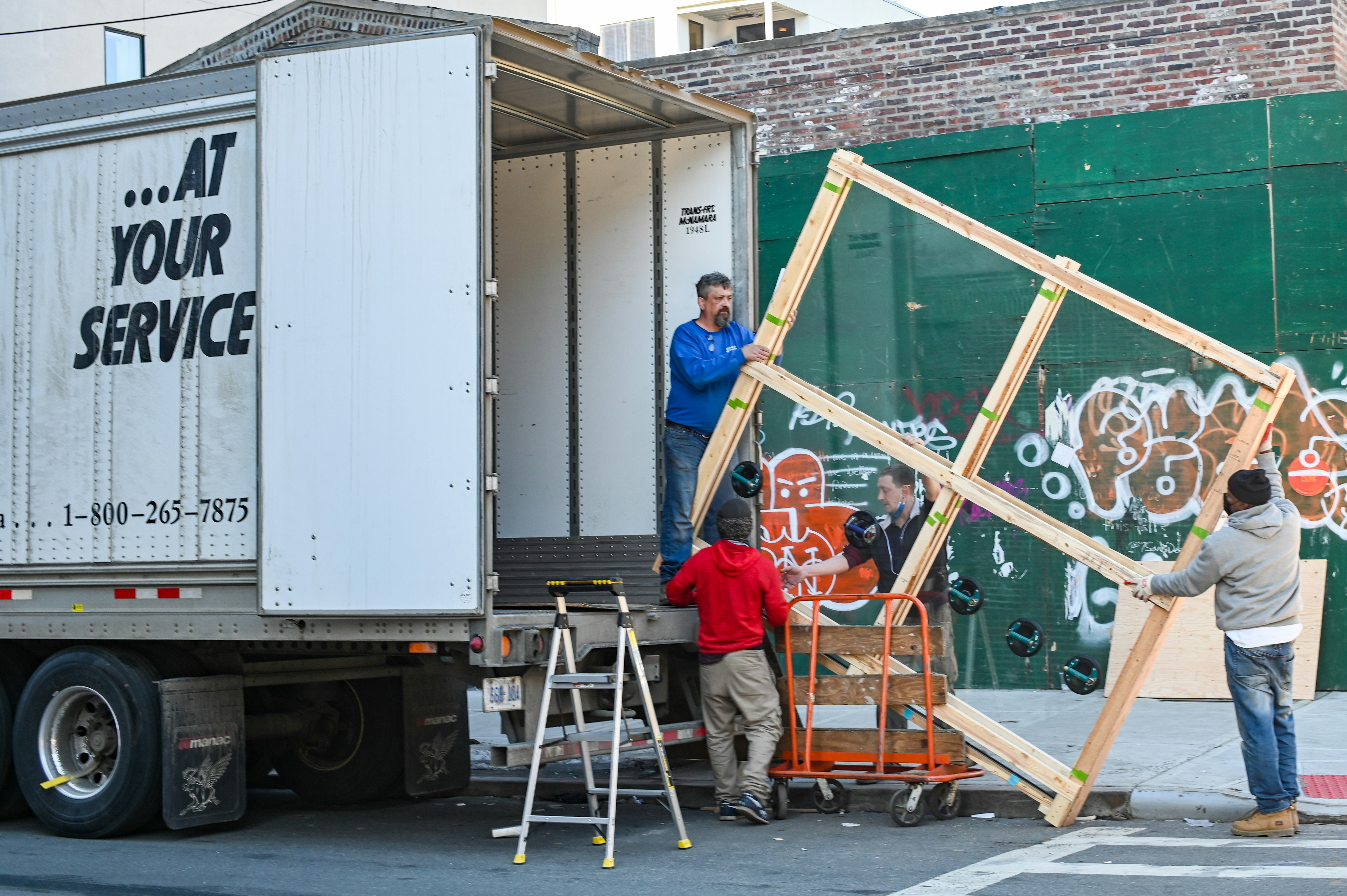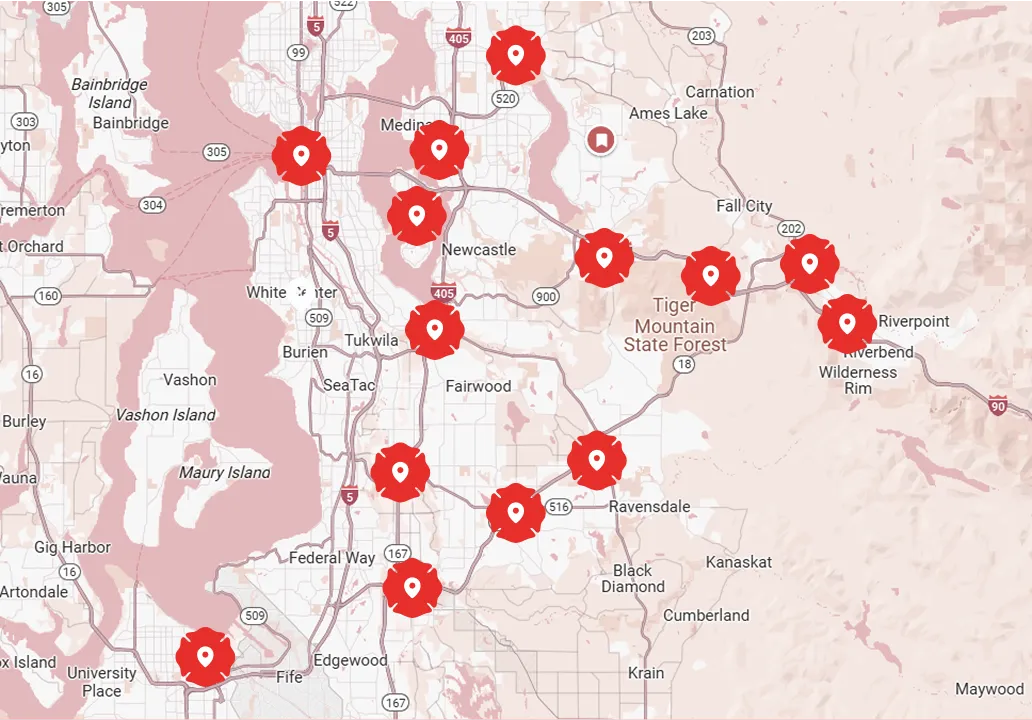State to State Movers in Auburn, WA
.webp)
State-to-state moving in Auburn, WA demands expert coordination and detailed planning. Professional interstate movers manage every aspect of the relocation — from logistics and route planning to DOT/MC compliance and secure, long-haul packing. Comprehensive insurance and valuation coverage options provide added peace of mind, while delivery coordination ensures smooth scheduling and on-time arrival. Skilled teams anticipate and minimize potential delays caused by weather, traffic, or seasonal demand, handling necessary permits, loading restrictions, and route adjustments with precision. The result is a streamlined, protected move from origin to destination, built on reliability and transparency.

Moving State to State Movers in Auburn, WA
Moving state to state from Auburn, WA requires more planning than a local move. You are dealing with longer transit times, interstate regulations, secure long-haul transport, and a different risk profile for your belongings. This page explains what to expect from professional state-to-state moving services in Auburn, WA: logistics coordination, DOT/MC credentials, packing and secure transport for longer hauls, timeline expectations, insurance and claims procedures, and a practical checklist to prepare your home for the move.
Why specialized state-to-state moving matters for Auburn residents
Auburn sits in the Puget Sound region with easy access to I-5, SR-167, and I-405 corridors. That convenience helps travel time, but it also means frequent traffic, construction delays, and mountain weather when heading east or south. Long-haul shipments cross different climates and road conditions, so movers who know interstate rules, weigh station protocols, and proper load securement reduce risk and stress. Choosing movers experienced with state-to-state moves in Auburn, WA gives you better timeline accuracy, safer transport, and smoother paperwork handling.
Core components of state-to-state moving services
- Logistics coordination: Route planning that considers traffic patterns around Auburn, seasonal road closures (for mountain passes), bridge restrictions, and staging for courier handoffs when necessary.
- DOT/MC compliance: Carriers operating interstate have Department of Transportation (DOT) numbers and Motor Carrier (MC) authority. These credentials mean the carrier follows federal safety, insurance, and operational standards for moves across state lines.
- Packing for longer hauls: Heavy-duty moving boxes, wardrobe boxes, mattress covers, shrink wrap, and reinforced crating for fragile or high-value items to handle long transit and transfers.
- Secure transport: Air-ride trailers, load straps, padded blocking, and professional stacking to minimize shifting on extended trips. For certain routes, climate-controlled trailers or protective covers are used to handle moisture and temperature changes.
- Insurance and valuation options: Understanding the difference between released value and full-value protection, how valuation is applied, and what documentation you need for claims.
- Delivery coordination: Scheduled delivery windows, short- and long-term storage options if timing does not line up, and unloading/protection plans for your new residence.
Common state-to-state moving issues in Auburn, WA and how pros address them
- Weather delays: Western Washington rain and winter mountain snow can slow or reroute trucks. Experienced carriers build contingency days into timelines and use alternate routes to avoid pass closures.
- Parking and loading restrictions: Auburn neighborhoods and apartment complexes sometimes require loading permits or limited street parking. Movers coordinate permits and timed loading windows in advance.
- Long transit damage risk: Vibration and multiple load/unload cycles increase risk for fragile items. Proper crating, padding, and securement reduce damage on long hauls.
- Peak-season capacity shortages: Summer and month-end demand spikes create booking shortages. Professional planners recommend booking early and providing accurate inventories to secure space.
- Coordination with movers at destination: Scheduling delivery times and elevator or parking arrangements at the receiving location prevents last-minute delays.
What DOT/MC credentials mean for your move
DOT and MC numbers show a carrier is authorized for interstate hauling and subject to federal oversight. That translates to:
- Federally mandated insurance minimums
- Routine safety audits and driver qualification records
- Proper cargo manifests and Bill of Lading proceduresAsk for the carrier’s DOT/MC numbers so you can verify their authority and safety record. These credentials are important for transparency and compliance when transporting goods across state lines.
Packing and secure transport best practices for longer hauls
- Use moving-grade boxes and label contents and rooms clearly.
- Pad and wrap furniture using moving blankets and stretch wrap; disassemble large items to reduce shifting.
- Use wardrobe boxes for clothing to prevent folding and moisture issues.
- Place heavier items low and secure with straps; fill voids to prevent movement during transit.
- For long trips or mixed-climate routes, consider extra moisture protection and avoid packing items that could leak or freeze.
- Professional movers will use air-ride trailers and load-planning techniques to minimize vibration and protect delicate items.
Timeline expectations for Auburn to another state
- Typical scheduling window: Most interstate moves are planned 2 to 8 weeks in advance, depending on season and availability.
- Transit time: Depends on distance and route complexity. Short regional interstate trips may be 1 to 3 days, multi-state moves often range from 3 days to 2 weeks.
- Contingency planning: Expect built-in buffer days for traffic, road work, and weather. Movers should provide a delivery window rather than an exact date for long hauls.
- Book early for movers during summer and month-end peaks to lock in preferred dates and equipment.
Insurance and claims: what to know
- Bill of Lading: This is your contract of carriage. It lists the mover’s valuation options and is the primary document for claims.
- Released value protection: Often provided at no additional charge, it offers minimal reimbursement based on weight. Understand its limits before relying on it.
- Full value protection: Higher coverage where the mover repairs, replaces, or pays depreciated value for lost or damaged items. This usually involves additional cost but is advisable for high-value moves.
- Document everything: Take photos of items and room conditions before pickup and after delivery. Keep receipts and the original Bill of Lading.
- Filing claims: Notify the carrier promptly of any loss or damage and follow the process in your Bill of Lading. Filing deadlines exist, so act quickly if you discover damage.
Checklist to prepare your Auburn home for a state-to-state move
- Inventory: Create a room-by-room list of all items, noting high-value possessions.
- Measurements: Measure large furniture and doorways at both origin and destination.
- Packing plan: Decide which items you will pack and which you want the movers to pack.
- Documents: Gather passports, birth certificates, medical records, and moving paperwork in a single folder you keep with you.
- Utilities and services: Schedule disconnects and new service start dates to avoid overlap or gaps.
- Parking and permits: Reserve loading zone permits or notify HOA/management about move dates and truck parking.
- Appliance prep: Defrost and dry refrigerators, disconnect washers and gas dryers according to safety guidelines.
- Pets and plants: Arrange travel for pets and check state regulations for moving plants across state lines.
- Essentials kit: Pack a box or bag with clothes, medications, chargers, important documents, and a basic toolkit for the first few days.
- Photos and condition reports: Photograph furniture and electronics before pickup for claims documentation.
Final considerations
A state-to-state move from Auburn, WA demands a partner who understands regional traffic patterns, mountain weather impacts, and federal moving regulations. Focus on carriers with verified DOT/MC credentials, clear valuation options, and a written moving plan that covers packing, secure long-haul transport, and realistic timelines. Proper preparation at home combined with professional long-distance moving practices reduces stress and protects your belongings throughout the trip.

